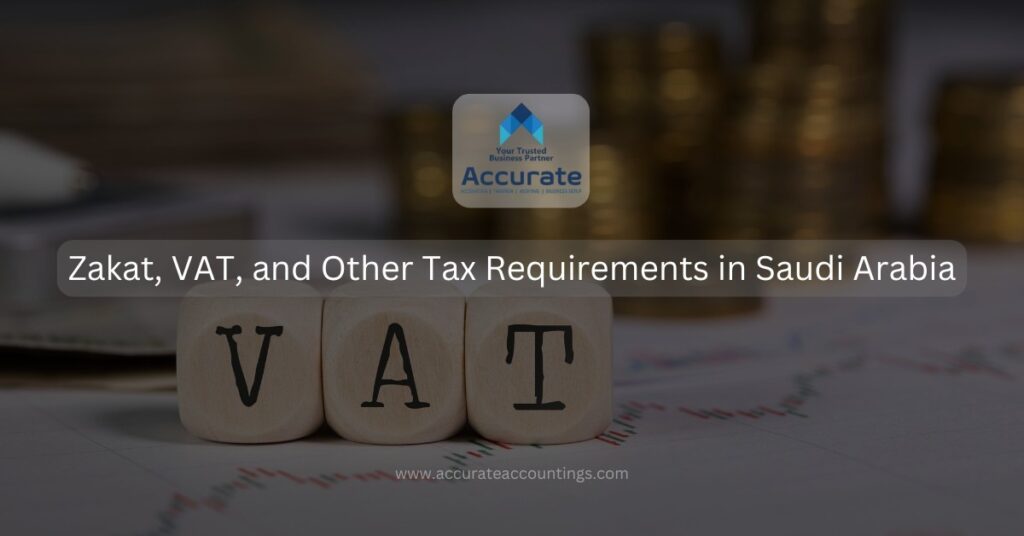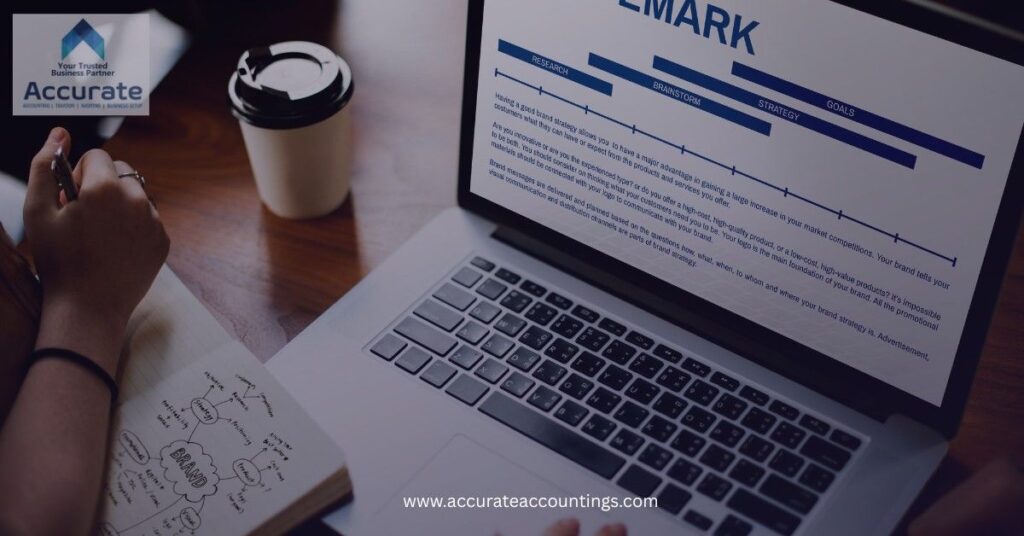Zakat, VAT & Other Tax Requirements in Saudi Arabia

Saudi Arabia is a vibrant country with an excellent business climate. Its thriving economy and strategic location make it an ideal destination for business formation. However, company formation in Saudi Arabia is not as easy as we think in the country. We all know that! In a forward-looking country like Saudi Arabia, you must face many challenges: Zakat, Value Added Tax (VAT), and other tax requirements to build your dream. This blog will help you easily handle your responsibilities.
What is Zakat?
Zakat is an obligation under Sharia and the ‘obligatory tithe’, equivalent to 2.5% of the owner’s wealth, which should be distributed to the needy. Zakat in Saudi Arabia is calculated on the company’s Zakat base at a rate of 2.5%. The principle is mainly applicable to Saudi nationals and citizens of the GCC.
A Zakat payer is defined as a natural or legal person conducting activities subject to Zakat under the Regulations, which includes sole proprietorships, corporations, or individuals operating a business with a valid license from a competent authority. Those who obtain a certificate exempting them from Zakat are also recognized as Zakat payers. Additionally, residency requirements specified in Article (3) of the Regulation apply to these individuals. Conversely, anyone who does not meet the residency criteria is classified as a non-resident. The fiscal year for Zakat payers can be either Hijri or Gregorian, and it may vary in length and be applicable at the beginning or end of their activities.
Understanding VAT
VAT was first implemented in Saudi Arabia in January 2018 at a rate of 5%; however, on July 1, 2020, it was raised to 15%. Most products and services sold in Saudi Arabia are subject to VAT, an indirect tax.
Value Added Tax (VAT) is a type of indirect tax that consumers in Saudi Arabia pay on a variety of goods and services. The VAT Law describes the VAT implementation outlined in the Unified VAT Agreement of the Cooperation Council for Arab States of the Gulf, within the framework of Saudi Arabia’s corporate and legislative laws.
An indirect tax on the use or consumption of goods or services, value added tax (VAT) is imposed at every level of the supply chain, from the point at which the producer buys raw materials to the point at which the merchant sells the goods to the customer. VAT registrants will collect the VAT from their clients that is relevant to their taxable activity and submit the collected tax to the appropriate authorities. Anyone who engages in commercial activity, whether natural or legal, is liable for VAT and must register.
The present rate of 15% for most goods and services is one of the significant features of VAT. Certain goods, known as “zero-rated supplies,” may be exempt from taxes, such as exports and particular foods.
Companies whose yearly deliveries are above SAR 375,000 are required to register for VAT. Smaller companies may choose to voluntarily register if their supplies fall below this limit.
Other Tax Requirements
Corporate Income Tax
For investors outside of this Saudi kingdom, income tax becomes 20% of the net adjusted profits. However, income derived from oil and hydrocarbon production can be taxed up to as high as 85%. It all depends on the conditions and factors during the time of production.
Withholding Tax (WHT)
The rates of WHT go between 5% and 20%, depending on the nature of the payments made to non-residents for services rendered within Saudi Arabia.
Real Estate Transaction Tax (RETT)
There is a 5% tax on the total value of real estate transactions in whatever condition or usage.
Excise Tax
Excise tax applies to specific goods, such as tobacco products (100%) and sugary drinks (50%). The manufacturers and importers must register with Zakat, Tax and Customs Authority (ZATCA) to comply with these regulations.
Compliance and Reporting
Commercial enterprises must maintain accurate accounts and report on a regular basis to ZATCA (Zakat, Tax and Customs Authority).
For any business, an accountancy firm needs to make sure the proper registration with respect to VAT and other taxes relevant to the business is done. Recording of transactions that include sales invoices that reflect the amount of VAT is considered important. A business needs to file its VAT returns monthly if it exceeds SAR 40 million in annual supplies. Correcting know-how with respect to changes in tax laws is important to avoid penalties.
Familiarity with Zakat and VAT, among other tax requirements, plays an essential role in complying with Saudi Arabia’s tax requirements and running a successful business. They have to understand all these obligations, and records should be kept accurately to deal with all the bureaucracy of the Saudi tax system. If you plan to form a business or require guidance with tax requirements, Accurate Accountings will be there for you step by step. We have a clear understanding of the lay of the land here, which will allow us to provide finely customized advice as your business takes root and flourishes in Saudi Arabia’s fast-changing marketplace.
Ready to start your business in KSA? Contact us today for free expert guidance!
Ready to start your business in KSA?



